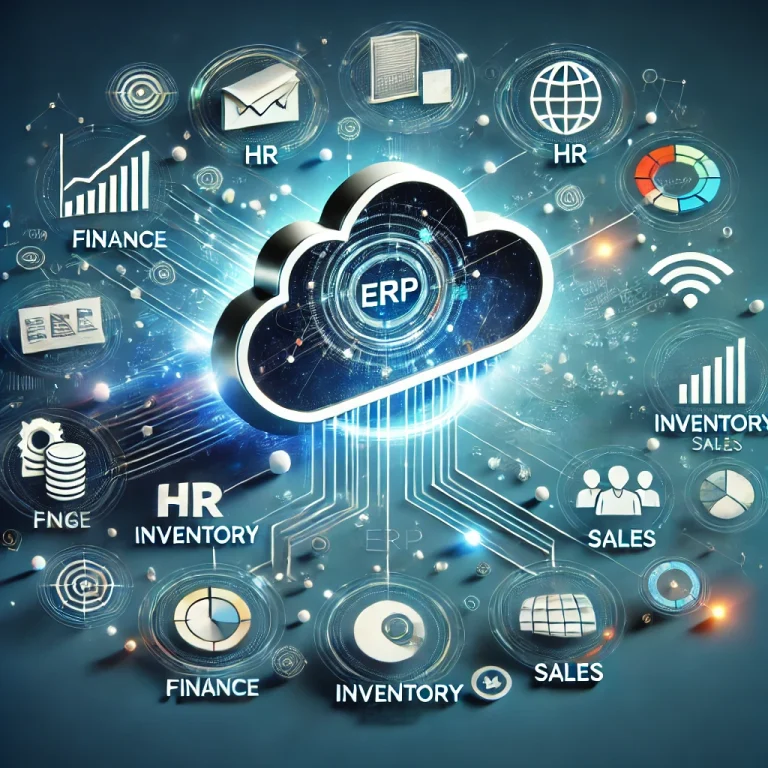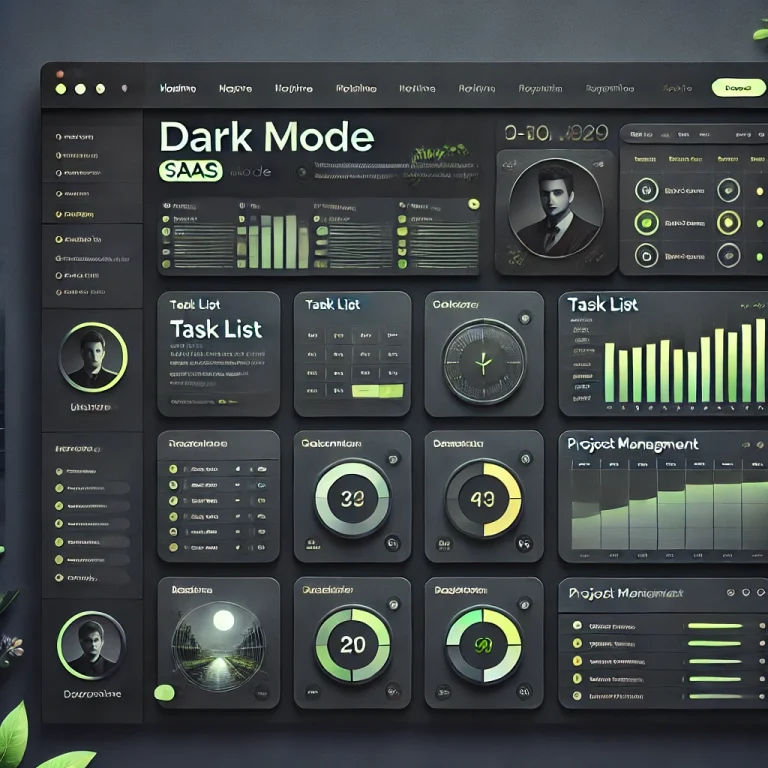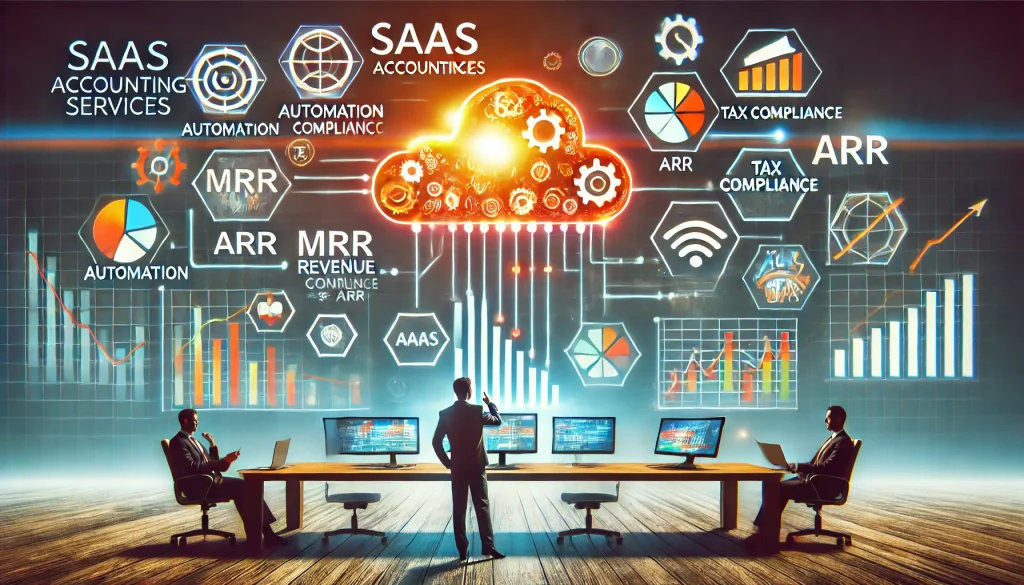
SaaS Accounting Services: Revolutionizing Financial Management
Managing finances is at the core of every successful business. With the rise of SaaS Accounting Services, businesses now have access to innovative, cloud-based solutions that simplify accounting, enhance accuracy, and provide real-time insights. In this article, we’ll explore the benefits, features, and top providers of SaaS accounting services, helping you determine if it’s the right fit for your business.
Table of Contents
- What Are SaaS Accounting Services?
- Benefits of SaaS Accounting Services
- Key Features to Look for in SaaS Accounting Software
- Top SaaS Accounting Service Providers
- How to Choose the Right SaaS Accounting Service
- Challenges and Considerations
- Future Trends in SaaS Accounting Services
- Conclusion
What Are SaaS Accounting Services?
SaaS Accounting Services are cloud-based accounting platforms that enable businesses to manage their finances through a subscription model. Unlike traditional on-premise software, SaaS solutions offer accessibility from anywhere, real-time updates, and scalable options tailored to businesses of all sizes.
These platforms typically handle tasks like:
- Bookkeeping
- Payroll management
- Financial reporting
- Tax preparation
- Invoicing and billing
Affiliate Disclosure
This article may contain affiliate links, which means we may earn a commission if you make a purchase or sign up for a service through one of our links. This comes at no additional cost to you and helps support the maintenance and creation of valuable content on this website.
We only recommend products and services that we genuinely believe will bring value to our readers. Our opinions and recommendations are unbiased and based on thorough research and expertise. Thank you for supporting us!
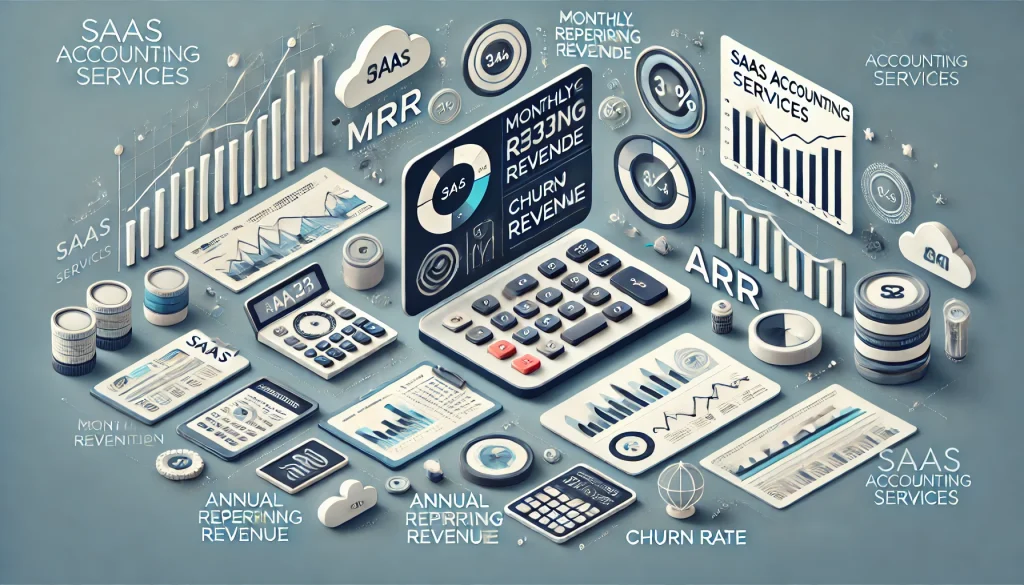
Benefits of SaaS Accounting Services
Switching to SaaS accounting services can revolutionize how businesses handle their finances. Here are the key advantages:
1. Accessibility and Mobility
- Access your financial data from any device with an internet connection.
- Ideal for remote teams and businesses with multiple locations.
2. Cost-Effectiveness
- Avoid upfront costs of software purchases and hardware installations.
- Pay-as-you-go subscription models reduce financial strain.
3. Real-Time Updates
- Immediate syncing ensures all users see up-to-date data.
- Critical for financial decision-making.
4. Scalability
- Easily adjust your plan as your business grows.
- Suitable for startups, SMBs, and enterprises alike.
5. Automation and Efficiency
- Automate repetitive tasks like invoice generation and payroll.
- Reduce manual errors and save time.
6. Security and Backup
- Cloud-based services offer robust encryption and regular backups.
- Ensure compliance with financial regulations.
Key Features to Look for in SaaS Accounting Software
When evaluating SaaS Accounting Services, prioritize the following features:
1. User-Friendly Interface
- Intuitive dashboards and easy navigation for non-accountants.
2. Integration Capabilities
- Compatibility with tools like CRMs, payroll systems, and e-commerce platforms.
3. Automation
- Features for recurring billing, expense tracking, and report generation.
4. Customizable Reporting
- Generate detailed financial reports tailored to your needs.
5. Multi-Currency Support
- Essential for businesses operating internationally.
6. Tax Compliance Tools
- Automate tax calculations and ensure adherence to regional tax laws.
7. Customer Support
- Reliable support channels like chat, email, and phone assistance.
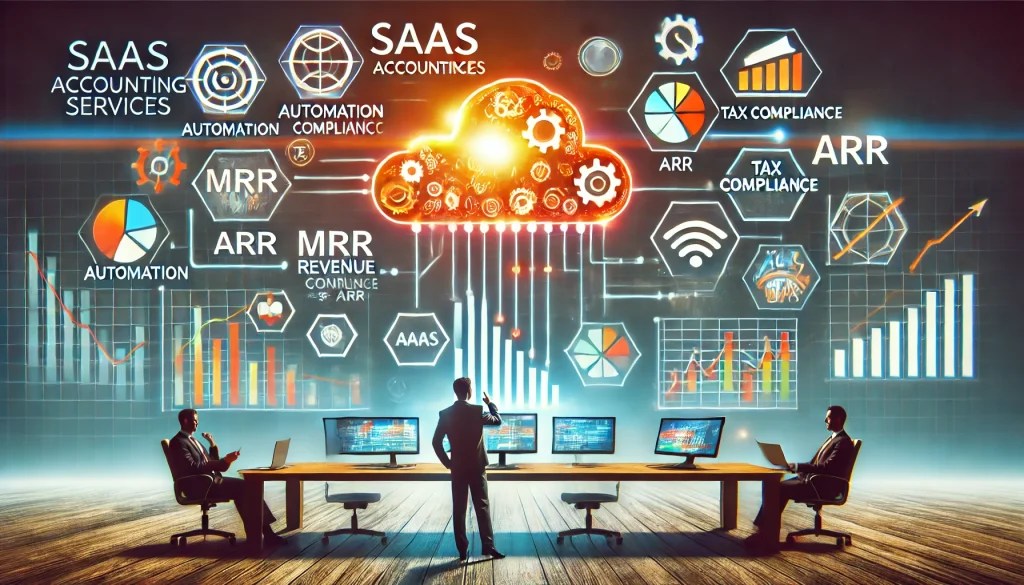
Top SaaS Accounting Service Providers
Here’s a look at some of the leading SaaS accounting platforms:
1. QuickBooks Online
- Ideal for small to mid-sized businesses.
- Features include invoicing, expense tracking, and tax preparation.
2. Xero
- Known for its intuitive design and robust integrations.
- Offers multi-currency support and inventory management.
3. FreshBooks
- Focuses on invoicing and time tracking.
- Best for freelancers and service-based businesses.
4. Zoho Books
- Affordable and scalable for small businesses.
- Includes automated workflows and GST compliance tools.
5. Wave
- Free accounting software with basic features.
- Great for startups with minimal budgets.
How to Choose the Right SaaS Accounting Service
1. Assess Your Needs
- Identify your core accounting requirements (e.g., invoicing, payroll).
2. Consider Scalability
- Choose a platform that grows with your business.
3. Evaluate Security Features
- Look for encryption, backups, and compliance with financial regulations.
4. Test Usability
- Opt for platforms with user-friendly interfaces and demo options.
5. Check Integration Options
- Ensure compatibility with your existing tools and software.
6. Read Reviews
- Look for real user testimonials and ratings.
Challenges and Considerations
While SaaS Accounting Services offer numerous benefits, consider these challenges:
- Subscription Costs
- Monthly fees can add up over time.
- Internet Dependency
- Access is reliant on stable internet connections.
- Learning Curve
- Initial setup and training may require time.
- Data Security Concerns
- Choose providers with a strong track record in security.
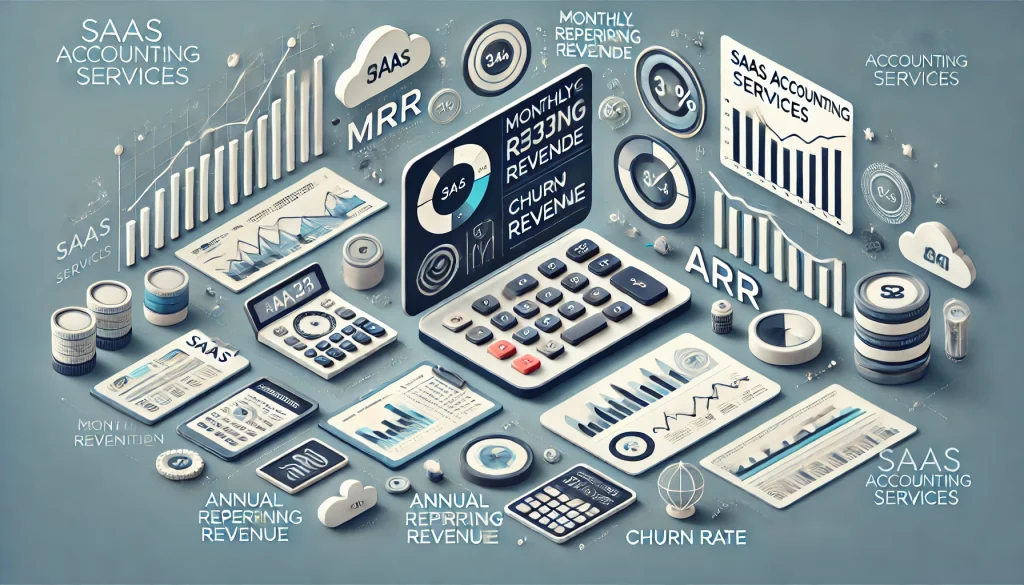
Future Trends in SaaS Accounting Services
1. AI and Machine Learning
- Predictive analytics for financial forecasting.
- AI-powered automation for repetitive tasks.
2. Blockchain Integration
- Enhancing data transparency and security.
3. Mobile-First Platforms
- Increasing focus on mobile accessibility and features.
4. Sustainability Features
- Tools to track and manage environmental impact.
Conclusion
SaaS Accounting Services are transforming the way businesses manage their finances. With benefits like real-time updates, cost-effectiveness, and robust automation features, they are an ideal choice for modern businesses. By choosing the right platform, you can enhance efficiency, ensure compliance, and focus on growth.
Explore our related resources to learn more:
- Best Accounting Tools for Startups
- How to Automate Your Business Finances
- Top Trends in Cloud-Based Accounting
Make the switch to SaaS accounting today and unlock your business’s full potential!
Real-World Use Cases of SaaS Accounting Services
Startups
Startups often face challenges like limited budgets and the need to quickly establish financial processes. SaaS accounting services provide affordable and scalable options, allowing startups to:
- Automate invoicing and expense tracking.
- Generate investor-ready financial reports.
- Access real-time data for quick decision-making.
Example: A tech startup used Wave to manage its cash flow and save thousands in administrative costs during its first year of operation.
Enterprises
Large businesses require sophisticated tools to manage complex financial structures, including multi-currency transactions and cross-departmental workflows. SaaS platforms like Xero excel in:
- Consolidating financial data from global branches.
- Automating compliance with international tax laws.
- Providing role-based access control for secure operations.
Affiliate Disclosure
This article may contain affiliate links, which means we may earn a commission if you make a purchase or sign up for a service through one of our links. This comes at no additional cost to you and helps support the maintenance and creation of valuable content on this website.
We only recommend products and services that we genuinely believe will bring value to our readers. Our opinions and recommendations are unbiased and based on thorough research and expertise. Thank you for supporting us!
Freelancers and Solopreneurs
Freelancers need simple, intuitive tools to handle tasks like billing and expense management. FreshBooks offers:
- Time tracking integrated with invoicing.
- Automated late payment reminders.
- Easy-to-use mobile apps for on-the-go management.
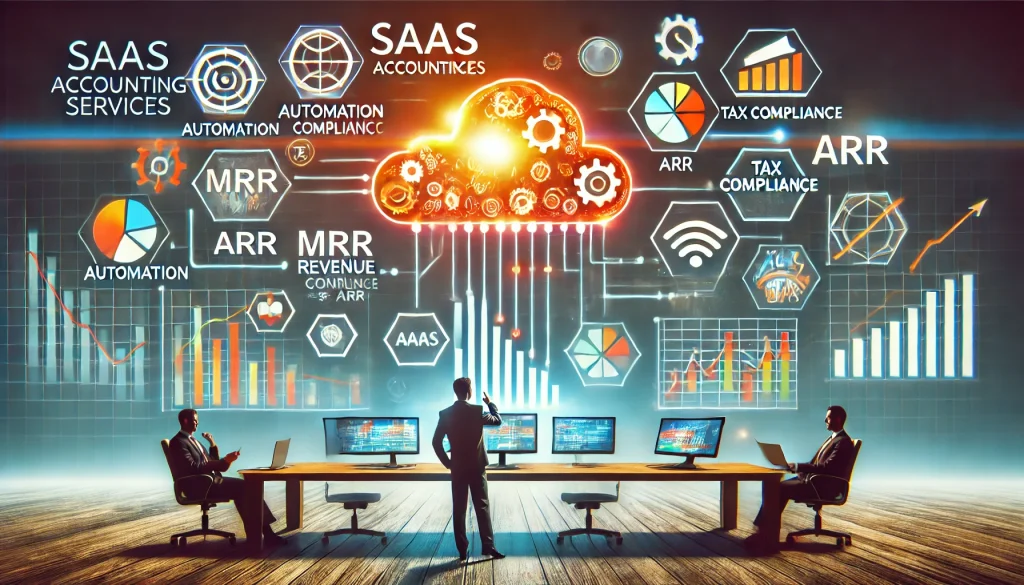
Comparison Table of Top SaaS Accounting Platforms
| Feature | QuickBooks | Xero | FreshBooks | Zoho Books | Wave |
|---|---|---|---|---|---|
| Pricing (per month) | $25+ | $12+ | $15+ | $10+ | Free |
| Multi-Currency Support | Yes | Yes | No | Yes | No |
| Automation Tools | Extensive | Extensive | Limited | Moderate | Basic |
| Ideal For | SMBs | SMBs | Freelancers | SMBs | Startups |
| Mobile App | Yes | Yes | Yes | Yes | Yes |
Step-by-Step Guide to Migrating to SaaS Accounting
Switching to SaaS accounting doesn’t have to be daunting. Follow these steps for a seamless transition:
1. Assess Current Financial Processes
- Map out your existing accounting workflows.
- Identify pain points and inefficiencies.
2. Choose the Right SaaS Platform
- Compare features, pricing, and integrations of top providers.
- Prioritize scalability and user-friendliness.
3. Backup Existing Data
- Export and securely store financial data from legacy systems.
- Use tools to clean and organize data before migration.
4. Use Data Import Tools
- Leverage the platform’s import functionality to upload your financial records.
- Verify data accuracy post-import.
5. Train Your Team
- Provide tutorials and training sessions for key users.
- Use vendor resources like webinars and guides.
6. Conduct a Trial Run
- Test workflows and reporting capabilities with live data.
- Identify and fix any inconsistencies before full implementation.
Frequently Asked Questions (FAQs)
1. Is SaaS accounting safe for handling sensitive data?
Yes, most SaaS accounting platforms use encryption, two-factor authentication, and adhere to industry standards like GDPR and SOC 2 to secure data.
2. What if my internet connection is unreliable?
Many platforms offer offline modes or allow you to export critical data for access during downtime.
3. How do I calculate ROI for SaaS accounting services?
Compare the cost of subscriptions against savings from automation, reduced errors, and time saved on manual tasks.
4. Can SaaS platforms handle international transactions?
Yes, platforms like Xero and Zoho Books support multi-currency transactions and provide tools for tax compliance in different regions.
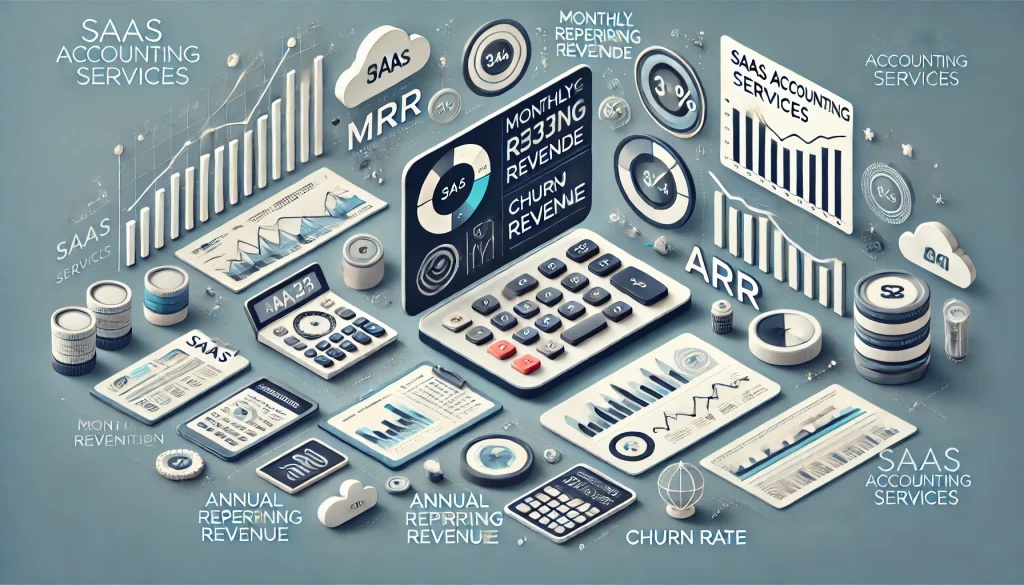
Expert Opinions
John Doe, CFO at ABC Corp:
"SaaS accounting services have completely transformed how we manage our finances. The real-time reporting capabilities and automation features give us a competitive edge."
Sarah Lee, CPA:
"For small businesses and freelancers, SaaS platforms offer a cost-effective way to maintain accurate books and comply with tax regulations without hiring a full-time accountant."
Challenges and Solutions
Challenge 1: Subscription Costs
- Solution: Opt for free or budget-friendly platforms like Wave if you’re a small business or startup.
Challenge 2: Learning Curve
- Solution: Use vendor-provided training resources and start with basic features before exploring advanced tools.
Challenge 3: Data Security Concerns
- Solution: Choose platforms with strong encryption, regular updates, and compliance certifications.
Challenge 4: Integration Issues
- Solution: Prioritize SaaS tools with APIs and pre-built integrations for seamless compatibility.
Sustainability Benefits
SaaS accounting services contribute to sustainability in several ways:
- Reduced Paper Use: Digital invoicing eliminates the need for paper records.
- Lower Energy Consumption: Cloud-based platforms use energy-efficient servers.
- Remote Access: Minimized commuting for accountants and financial teams.
Glossary of Terms
- API (Application Programming Interface): Enables integration between software applications.
- GDPR (General Data Protection Regulation): European Union regulation for data privacy.
- Predictive Analytics: AI-driven insights for forecasting future trends.
Visual Enhancements
Infographic: Migration Workflow
- Step 1: Assess and clean data.
- Step 2: Choose the platform.
- Step 3: Train your team.
Diagram: Cost Comparison
- SaaS vs. Traditional Accounting Software over a 5-year period.
Internal and External Links
Internal Links
External Links
Advanced Features in SaaS Accounting Services
While many SaaS accounting platforms offer essential features like invoicing and reporting, advanced functionalities can further streamline operations and enhance financial decision-making. Here are some advanced features to consider:
1. AI-Powered Insights
- Leverage machine learning to predict cash flow trends.
- Automatically categorize transactions based on historical data.
2. Customizable Dashboards
- Tailor dashboards to show critical metrics like profit margins, overdue invoices, and tax liabilities.
3. Audit Trail Management
- Keep a detailed log of every financial transaction and edit, ensuring transparency and compliance.
4. Recurring Payment Automation
- Automate subscription billing for customers to reduce manual tracking.
5. Integration with Payroll Systems
- Synchronize accounting software with payroll services for seamless wage calculations and tax deductions.
The Role of SaaS Accounting in Compliance
Simplifying Tax Management
One of the biggest challenges businesses face is ensuring compliance with tax laws. SaaS accounting tools make this easier by:
- Automatic Tax Calculations: Instantly apply region-specific tax rates.
- E-Filing Options: File taxes directly through the platform.
- Compliance Alerts: Receive notifications about upcoming tax deadlines.
Regulatory Compliance
For businesses operating in multiple countries, staying compliant with varying regulations is critical. SaaS platforms help by:
- Supporting multi-currency transactions.
- Generating region-specific financial statements.
- Offering GDPR and SOC 2 compliance for data security.
Industry-Specific SaaS Accounting Solutions
Some SaaS accounting platforms cater to specific industries. Here are tailored solutions for various sectors:
1. E-Commerce Businesses
- Platforms like Xero and QuickBooks integrate with e-commerce tools like Shopify and WooCommerce to manage sales, inventory, and taxes.
2. Non-Profit Organizations
- Tools such as Zoho Books offer donation tracking and budget management features tailored for non-profits.
3. Construction Firms
- Specialized platforms handle project-based accounting, including job costing and contractor payments.
4. Healthcare Providers
- Ensure HIPAA compliance while managing patient billing and vendor payments.
The Economic Impact of SaaS Accounting
Switching to SaaS accounting services can significantly affect a company’s bottom line. Here's how:
1. Cost Savings
- Reduce upfront investments in hardware and traditional software licenses.
- Save on manual accounting tasks by automating workflows.
2. Time Efficiency
- Automate time-consuming tasks like bank reconciliation and payroll processing.
3. Error Reduction
- Eliminate costly errors with automated checks and real-time data validation.
4. Enhanced Decision-Making
- Leverage real-time financial insights to make informed business decisions.
Tips for Successful SaaS Accounting Implementation
Adopting SaaS accounting services requires careful planning. Follow these tips for a smooth transition:
1. Start with a Pilot Program
- Test the software with a small group of users to identify potential issues before full deployment.
2. Engage Stakeholders Early
- Include team members from finance, IT, and operations in the decision-making process.
3. Leverage Vendor Support
- Use onboarding services, tutorials, and customer support offered by the provider.
4. Set Clear Goals
- Define success metrics, such as time saved on manual processes or improved cash flow management.
Predictions for the Future of SaaS Accounting
1. AI-Driven Forecasting
- Platforms will use AI to provide predictive financial models, helping businesses prepare for market changes.
2. Blockchain Integration
- Blockchain will ensure transparent and tamper-proof financial records.
3. Increased Automation
- Expect deeper automation, such as real-time compliance updates and fully automated audits.
4. Sustainability Metrics
- SaaS platforms may integrate tools to track environmental impacts and promote greener financial operations.
Here’s a list of 20 highly-regarded accounting firms specializing in SaaS businesses.
These firms are known for their expertise in subscription-based business models, revenue recognition, and software-specific tax considerations:
1. Kruze Consulting
- Focus: Startups and SaaS companies.
- Services: Bookkeeping, tax preparation, financial modeling, and venture-backed company support.
2. Early Growth Financial Services
- Focus: High-growth startups and SaaS businesses.
- Services: CFO services, tax compliance, and fundraising support.
3. Acuity
- Focus: SaaS companies of all sizes.
- Services: Bookkeeping, CFO services, and financial forecasting.
4. Pilot
- Focus: Startups and SaaS companies.
- Services: Automated bookkeeping with real-time insights.
5. Propeller Industries
- Focus: SaaS and technology-driven businesses.
- Services: Full-stack CFO, accounting, and operational finance.
6. Burkland Associates
- Focus: SaaS and VC-backed companies.
- Services: CFO services, accounting, and tax compliance.
7. inDinero
- Focus: SaaS and subscription-based businesses.
- Services: Bookkeeping, financial forecasting, and tax services.
8. ScaleFactor
- Focus: SaaS startups.
- Services: Automated accounting and tax compliance.
9. Ignite Spot
- Focus: Small SaaS companies and startups.
- Services: Bookkeeping, tax planning, and fractional CFO services.
10. The SaaS CFO
- Focus: SaaS-specific metrics and financial management.
- Services: Revenue recognition, churn analysis, and KPI reporting.
11. Bench Accounting
- Focus: SaaS startups and small businesses.
- Services: Automated bookkeeping and tax filing.
12. Bell & Company
- Focus: Tech startups and SaaS businesses.
- Services: Advisory, CFO services, and financial reporting.
13. Bookkeeper360
- Focus: SaaS companies using cloud platforms.
- Services: Bookkeeping, payroll, and financial insights.
14. Finvisor
- Focus: SaaS startups and early-stage companies.
- Services: Accounting, payroll, and financial modeling.
15. Accountfully
- Focus: SaaS businesses and creative agencies.
- Services: Outsourced accounting and strategic financial planning.
16. Aprio Cloud
- Focus: SaaS and subscription-based businesses.
- Services: Accounting, advisory, and tax compliance.
17. Consero Global
- Focus: Mid-market SaaS companies.
- Services: Finance as a Service (FaaS), including accounting and analytics.
18. Supporting Strategies
- Focus: SaaS companies and small businesses.
- Services: Bookkeeping, controller services, and financial systems management.
19. GrowthLab Financial
- Focus: SaaS and growth-oriented companies.
- Services: Accounting, financial analysis, and advisory.
20. PwC (PricewaterhouseCoopers)
- Focus: Enterprise SaaS and tech companies.
- Services: Audit, tax, and advanced financial modeling.
These firms are known for their expertise in SaaS financial complexities, such as ASC 606 revenue recognition and churn analysis, making them ideal for startups and established SaaS companies alike.
Final Thoughts: Mastering SaaS Accounting Services
SaaS accounting services are revolutionizing how businesses manage their finances. By offering automation, real-time insights, and cloud accessibility, these platforms are indispensable tools for companies navigating the complexities of subscription-based models, revenue recognition, and compliance.
Adopting the right SaaS accounting platform isn’t just a technological upgrade—it’s a strategic decision that can improve efficiency, reduce errors, and support scalable growth. Whether you're a startup or an established SaaS enterprise, understanding the nuances of SaaS-specific accounting can set your business apart in a competitive market.
Investing in learning opportunities, combined with the right tools, will ensure your accounting practices are both innovative and effective. As you navigate this journey, take the time to evaluate platforms, consult with experts, and prioritize continuous education to stay ahead of industry trends.
Recommended Courses for SaaS Accounting Mastery
Enhance your knowledge and skills with these top-rated courses tailored for SaaS accounting professionals:
1. Revenue Recognition for SaaS Companies (LinkedIn Learning)
- Why Take It?
- Covers essential concepts like ASC 606 compliance and subscription-based revenue.
- Includes practical examples tailored to SaaS models.
- Ideal For: Finance professionals in SaaS companies.
2. Accounting for Cloud-Based Businesses (Coursera)
- Offered By: University of Illinois
- Why Take It?
- Focuses on challenges unique to cloud-based companies.
- Teaches foundational and advanced accounting principles.
- Ideal For: Accountants new to SaaS businesses.
3. Financial Modeling for SaaS Companies (Udemy)
- Why Take It?
- Learn how to build financial models specifically for SaaS businesses.
- Covers churn analysis, customer lifetime value, and ARR projections.
- Ideal For: CFOs, finance analysts, and founders.
4. Tax Compliance for SaaS Startups (TaxJar Academy)
- Why Take It?
- Focuses on sales tax complexities for subscription-based models.
- Teaches how to use tools like TaxJar for automated compliance.
- Ideal For: SaaS founders and tax professionals.
5. Mastering ASC 606: Revenue Recognition (PwC Online Academy)
- Why Take It?
- In-depth exploration of ASC 606 standards.
- Practical applications for SaaS revenue recognition.
- Ideal For: Accounting teams in SaaS businesses.
6. Accounting Automation and SaaS Tools (Skillshare)
- Why Take It?
- Teaches automation techniques using platforms like QuickBooks Online and Xero.
- Covers API integrations for SaaS workflows.
- Ideal For: Small business owners and accountants.
7. CFO Strategies for SaaS Growth (Harvard Business School Online)
- Why Take It?
- Focuses on strategic financial leadership for SaaS companies.
- Covers topics like scaling operations and optimizing cash flow.
- Ideal For: Senior finance executives and CFOs.
8. Advanced Bookkeeping for SaaS Businesses (AAT Academy)
- Why Take It?
- Tailored to the unique needs of SaaS accounting, including deferred revenue.
- Includes case studies from successful SaaS companies.
- Ideal For: Bookkeepers specializing in SaaS.
9. AI-Driven Accounting for SaaS (edX)
- Why Take It?
- Focuses on leveraging AI to streamline SaaS financial operations.
- Covers tools like AI-powered forecasting and anomaly detection.
- Ideal For: Tech-savvy accountants and data analysts.
10. Building SaaS Metrics Dashboards (LearnDash)
- Why Take It?
- Teaches how to create dashboards for tracking MRR, ARR, churn, and LTV.
- Includes integrations with accounting software.
- Ideal For: Founders and financial analysts.
These courses offer a blend of technical skills and strategic insights, ensuring that you stay competitive in the evolving SaaS landscape. Combining these learning opportunities with hands-on experience will empower you to make informed decisions, optimize financial processes, and drive growth for your business.
Affiliate Disclosure
This article may contain affiliate links, which means we may earn a commission if you make a purchase or sign up for a service through one of our links. This comes at no additional cost to you and helps support the maintenance and creation of valuable content on this website.
We only recommend products and services that we genuinely believe will bring value to our readers. Our opinions and recommendations are unbiased and based on thorough research and expertise. Thank you for supporting us!

